We all started somewhere, and for most of us garage-dwellers, it was a set of sockets and screwdrivers. From there we progressively acquired tools to complete tasks until we reached a point where there wasn’t a project to be scared of. A big part of that is the mental toolbox, but the physical tools in your hands or on your bench can be critical in deciding if you are able to take on a project. We took a look around the garage and rounded up these eight tools that we recommend for a budding DIY enthusiast.
Drill press
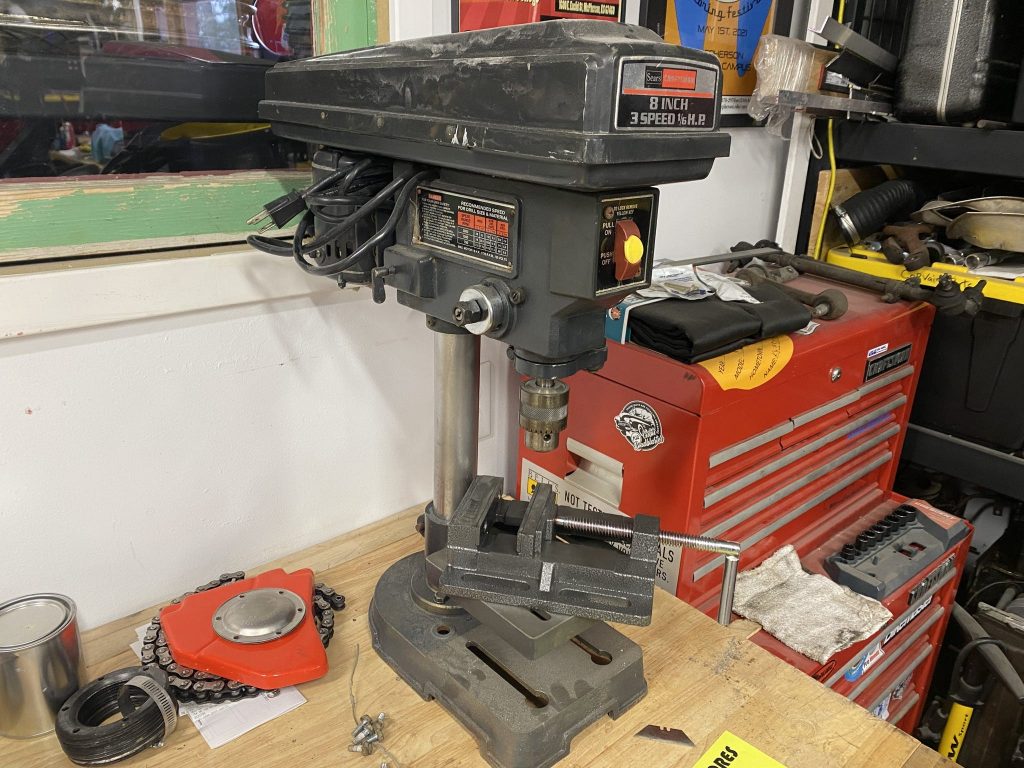
Hand drills are wonderful things to have, but more accuracy never hurt anyone. A drill press opens up a whole new world for fabrication and part repair in its ability to drill holes square to the work surface time and time again. It also allows for making jigs and fixtures that can make it much easier to repair multiple parts as well as handling things that are fragile or need to be orientated just so while being drilled.

Tool chest for organising
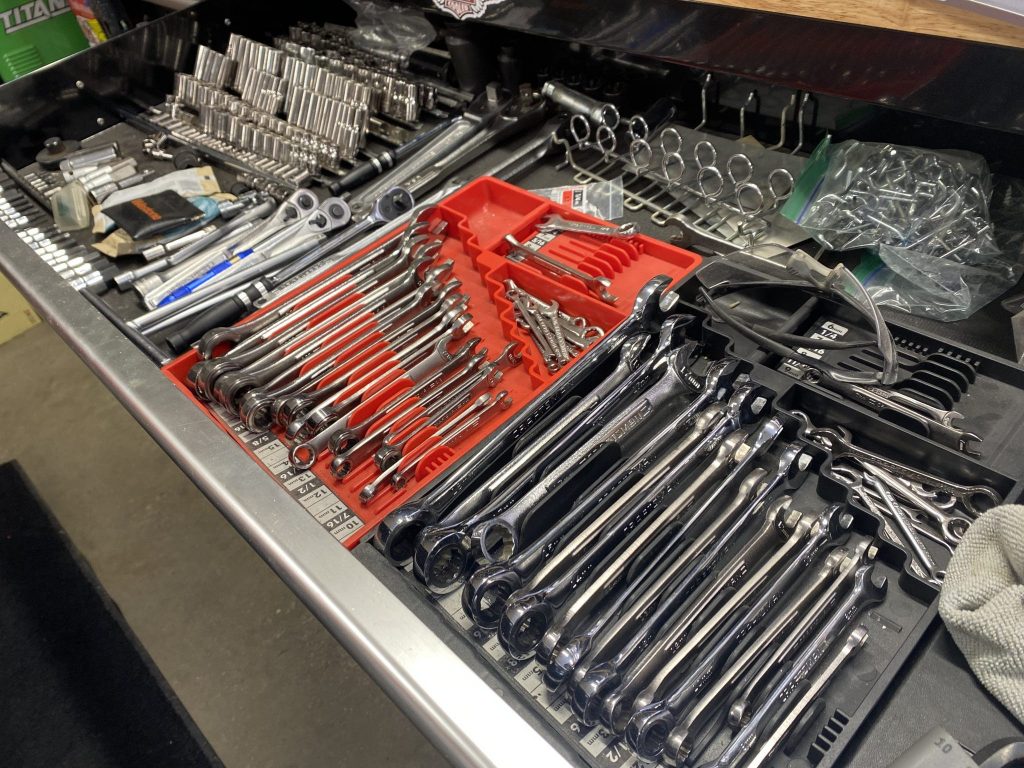
Keeping things in order is critical to not wasting time or space – two things that we never seem to have enough of. Spending time looking for tools or buying replacements because things keep “disappearing” is an obvious sign of someone that needs to invest more in a proper organisation system. Good garage organisation makes your time tackling DIY more efficient and also keeps things from piling up in the way. Add in the financial savings from parts not being damaged while in storage and tools that are kept in better shape and thus last longer and you have a recipe for high-quality finished projects.
Lights
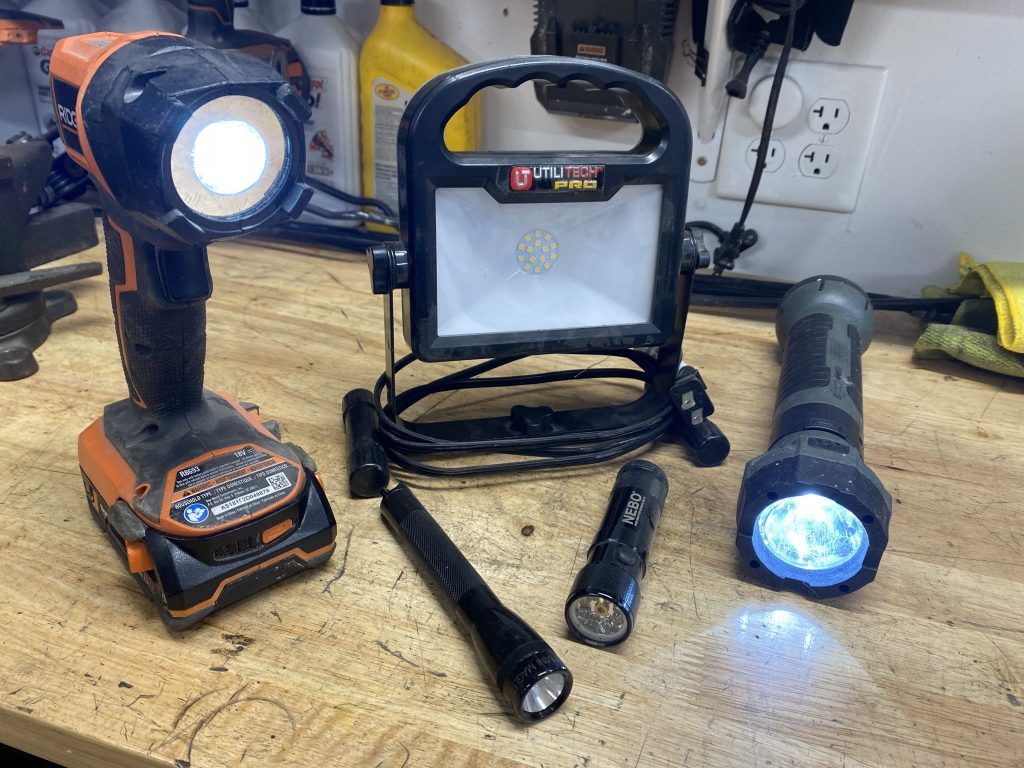
No one does good work in the dark. You literally need to see what you are doing in order to work on your projects. Prices on LED have dropped precipitously in recent years, so stock up on an array of options. You can find everything from large, plug-in work lights on stands down to small battery pen lights that can be zip-tied or magnet-mounted to various surfaces to point light just where you need it. Having light is not only more efficient because you are not guessing at what you are doing, but also safer and that elevates the whole experience.
A torch setup
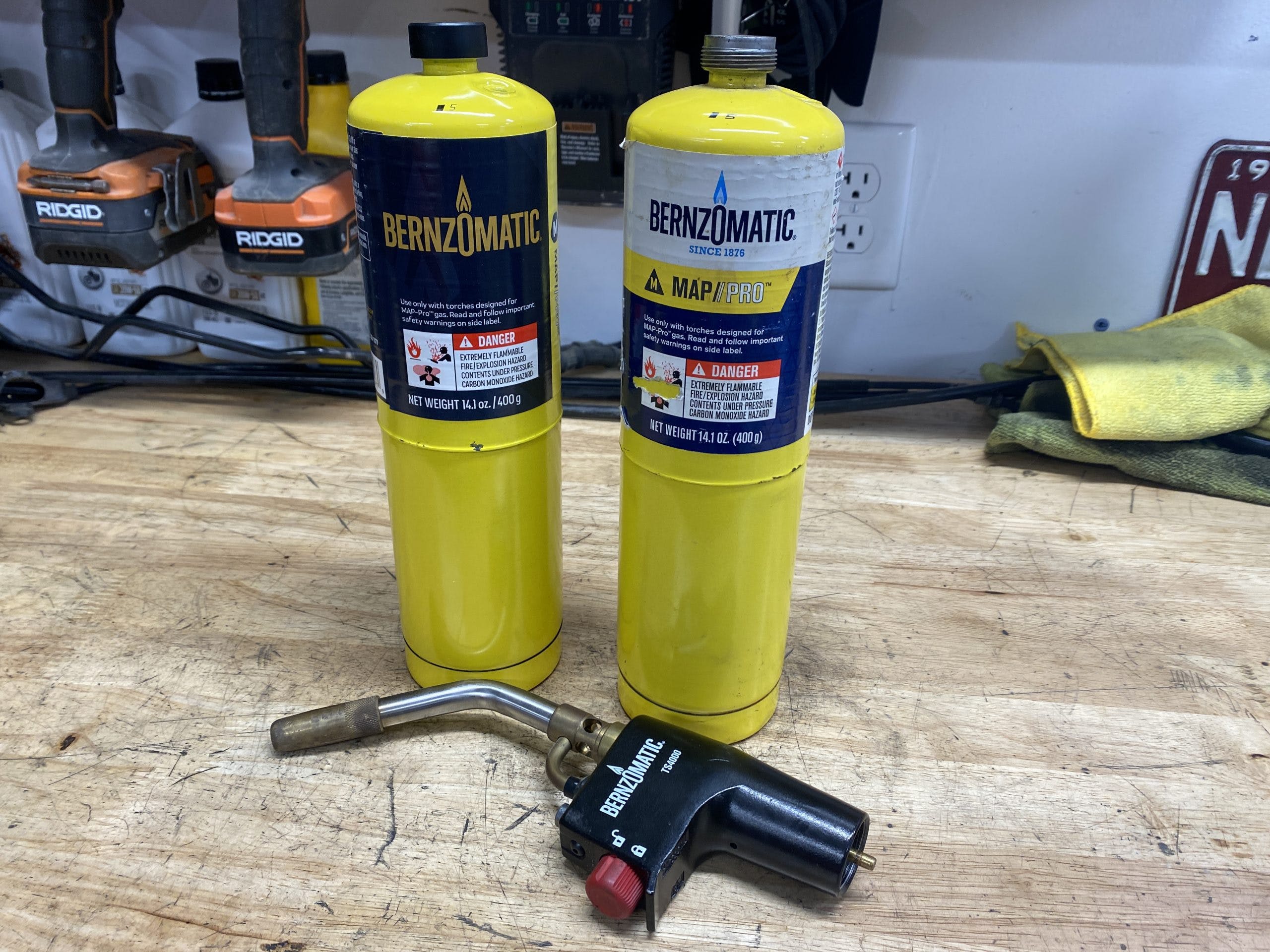
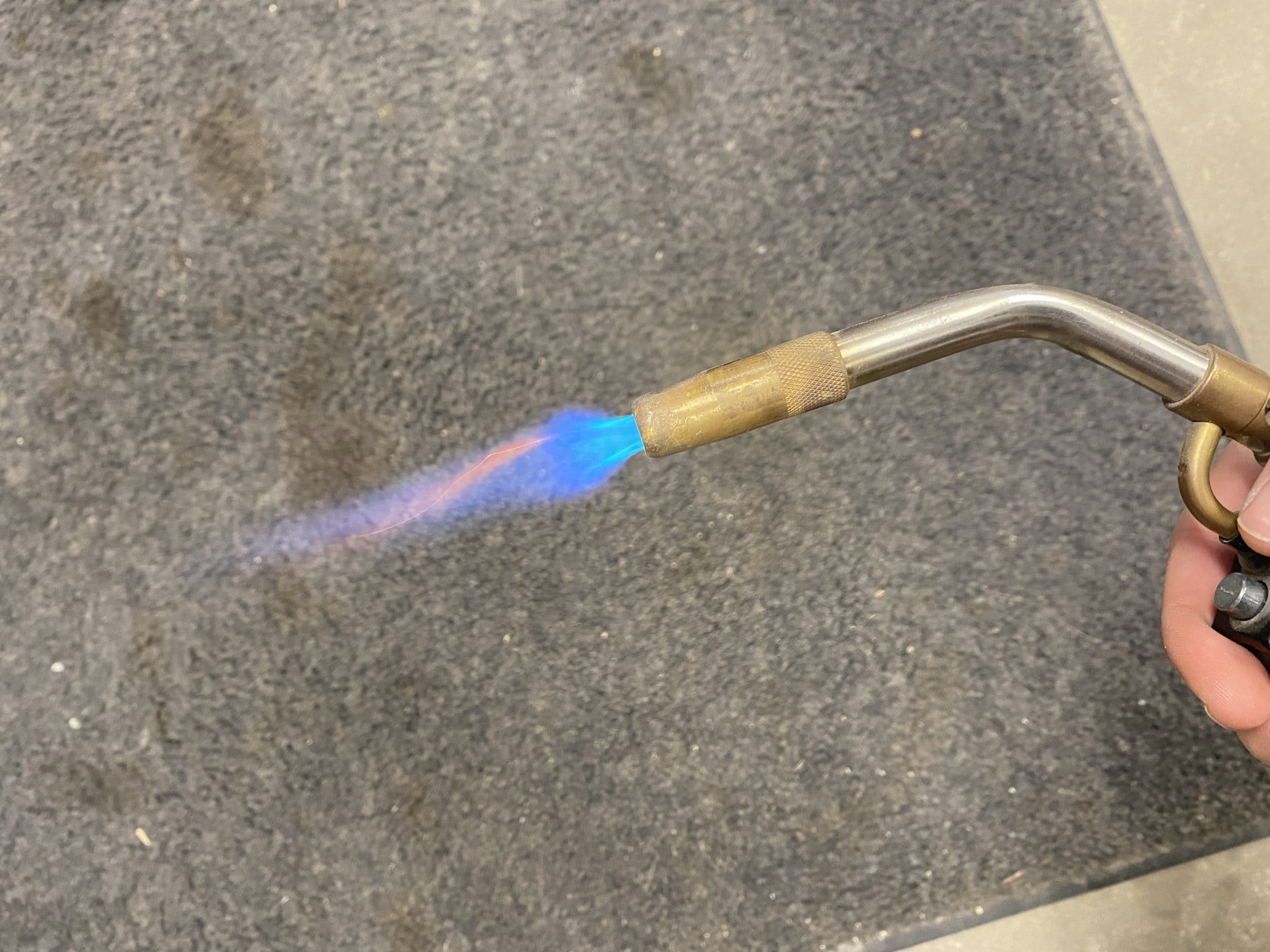
Heat is a superpower when it comes to working on crusty bits and pieces. Thermal expansion is your best friend to help with parts stuck together or holding fasteners tight. A full oxy-acetylene setup is ideal, but can be a pain to store and use safely if space is tight. At least have a MAPP gas torch as it burns a few hundred degrees hotter than your blue-tank propane torch and can put heat into parts quicker which can help keep seals and rubber parts close by safer in some situations. The internet joke about “can’t be tight if it’s liquid” is not really a joke to someone with an oxygen and acetylene tank in their corner. Bonus: these can also be used to weld, braze, and solder metals.
Digital calipers
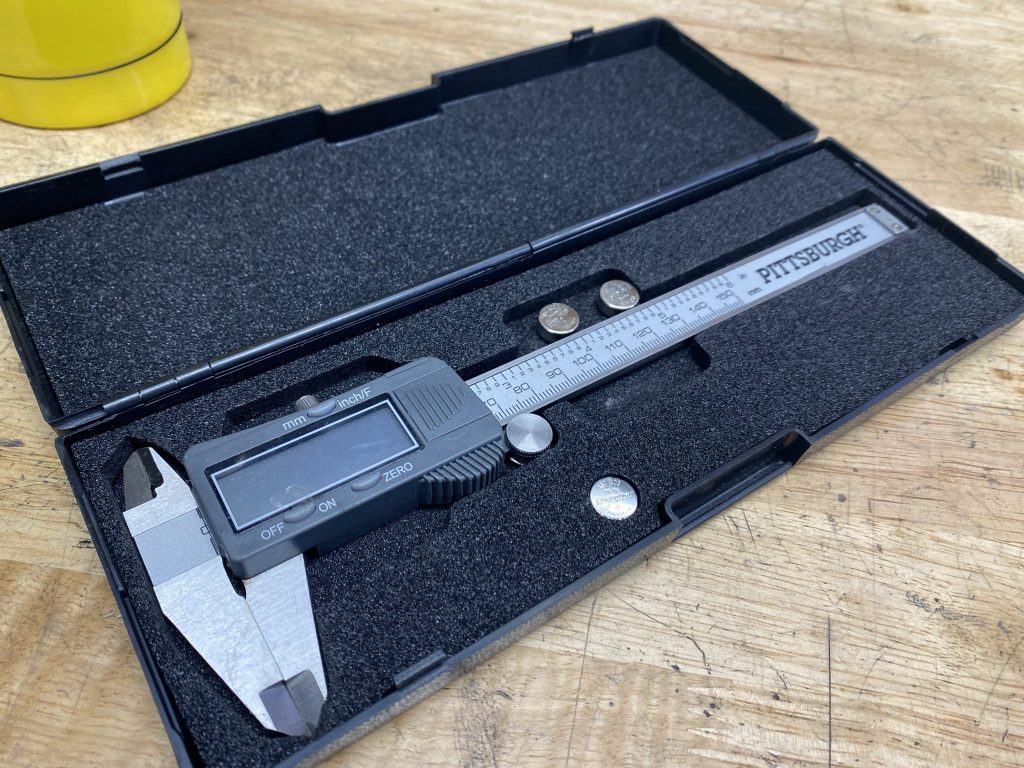
Tape measures and levels have their place in a garage, but those are mainly carpenters’ tools. Most automotive projects require more accuracy than a tape measure or ruler can provide. That’s where digital calipers come in. Even a cheap set is an upgrade from guess-and-check games about part fitment. In an era where the difference between the right and wrong bolt spacing on a random part can be a game of millimetres or fractions of an inch, it is truly great to be able to measure a piece at home and walk up to the parts counter armed with the knowledge that you will be taking the right part home – no second guess, no wasted time.
A high-quality tap set
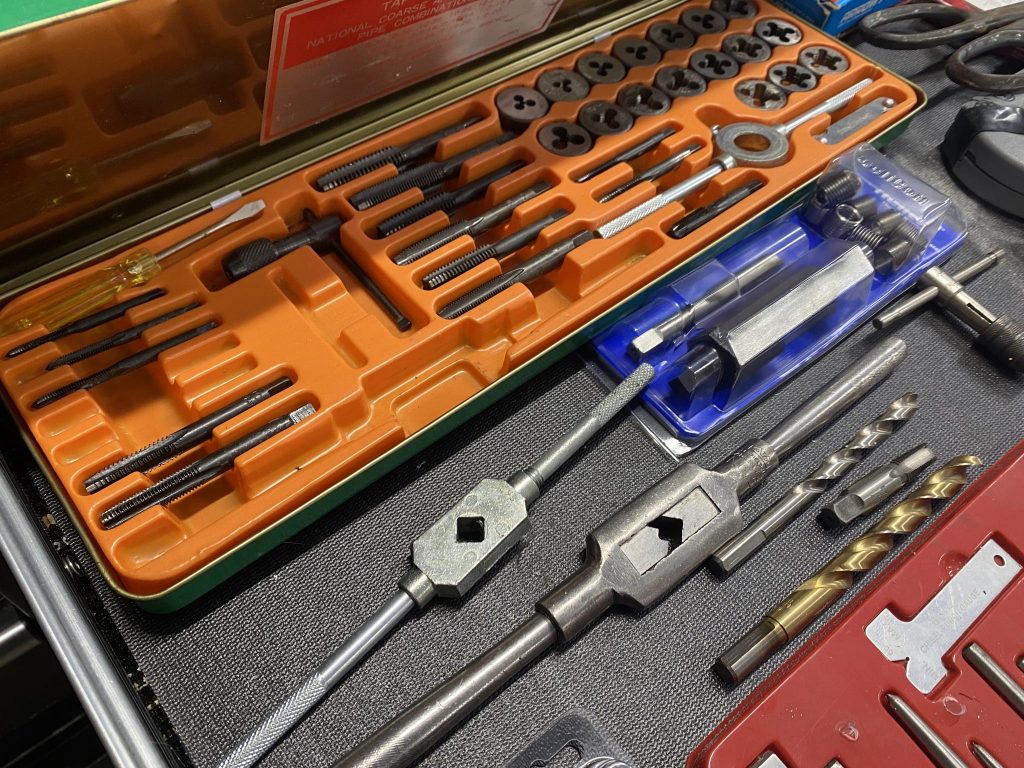
The ability to create an accurate threaded hole is key to just about any fabrication project. It’s also important to be able to clean out or restore threads on old parts to ensure proper fit. Not all taps fit the bill, however. This is the first entry that includes a disclaimer: high quality. Taps are made from very hard material and the thing about that is if they break off in a hole you are in for a world of frustration. I personally think you have two options for acquiring taps: Buy the big set and cry once at credit card bill, or buy what you need as you need it. This all comes down to what kind of cash you have on hand at the time. I came into ownership of a cheap tap set and it just sits in the back of the toolbox these days as anytime I need to cut threads I will purchase a high-quality piece of tooling in the appropriate size for the project and then index it in the toolbox for the future.
A machinist handbook
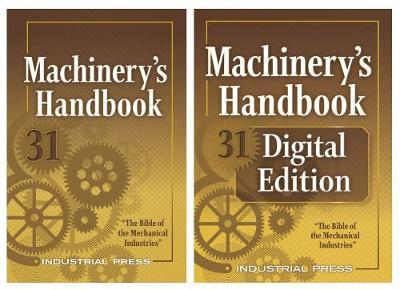
Having knowledge means things get done right the first time. Sure, you could learn over years of mistakes and thousands of Google searches that may or may not lead you to the right info, or you can have a handy little book up on your shelf to help solve your problems. When doing any amount of fabrication, it is important to select the proper materials and hardware. A machinist’s handbook will give the tensile strength of hardware, numbers to help with material selection, and drill size for given tap sizes, plus way more.
Welder
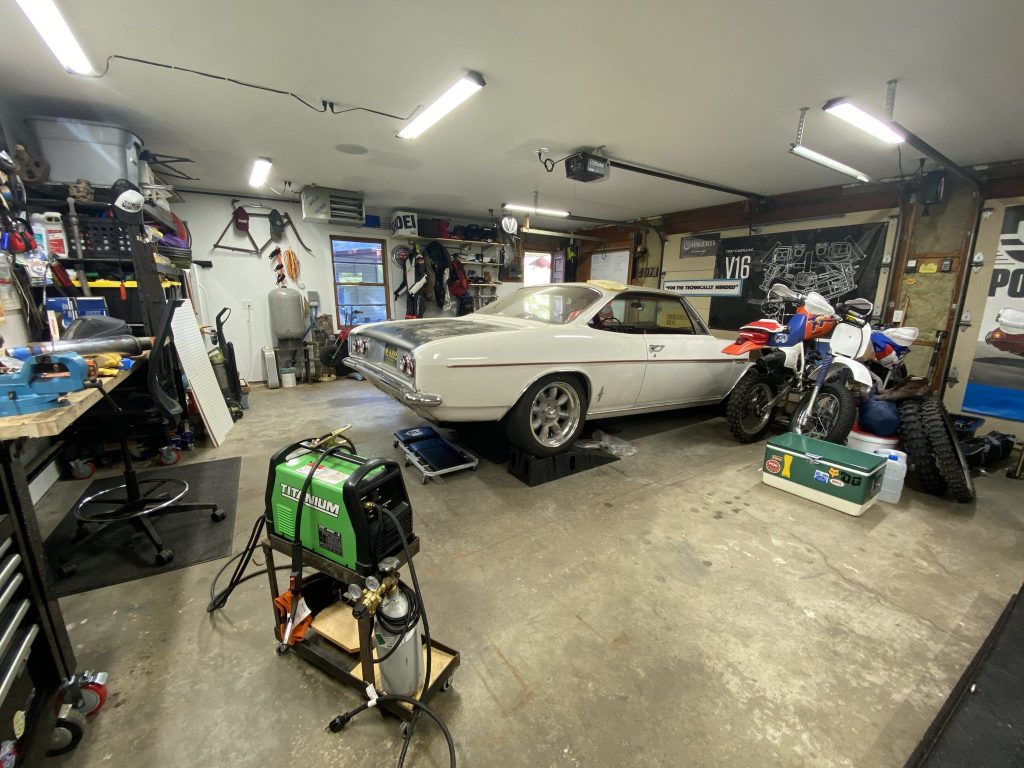
Left for last because it’s the most obvious. Just about any DIY enthusiast without a welder lusts after one, and for good reason. A welder can be a great problem solver and there is no reason not to have one these days with 110v models being more powerful, smaller, and more affordable than ever. Plan on burning a small spool or two or wire on scrap metal before joining any projects you care about. Or befriend your local metals or welding service to see if you can pick through their scrap bin to get material to practice on.
Adding these eight tools and disciplines to a basic tool kit makes you more than prepared for any home DIY project. If you have a recommendation you think should be added to the list, share it with the Hagerty Community below.
Read more
Loosen up DIY with WD-40, Bilt-Hamber and GT85. Which is best?
6 essential hand tools for every DIY toolbox
Socket Set: Choosing spanners for DIY







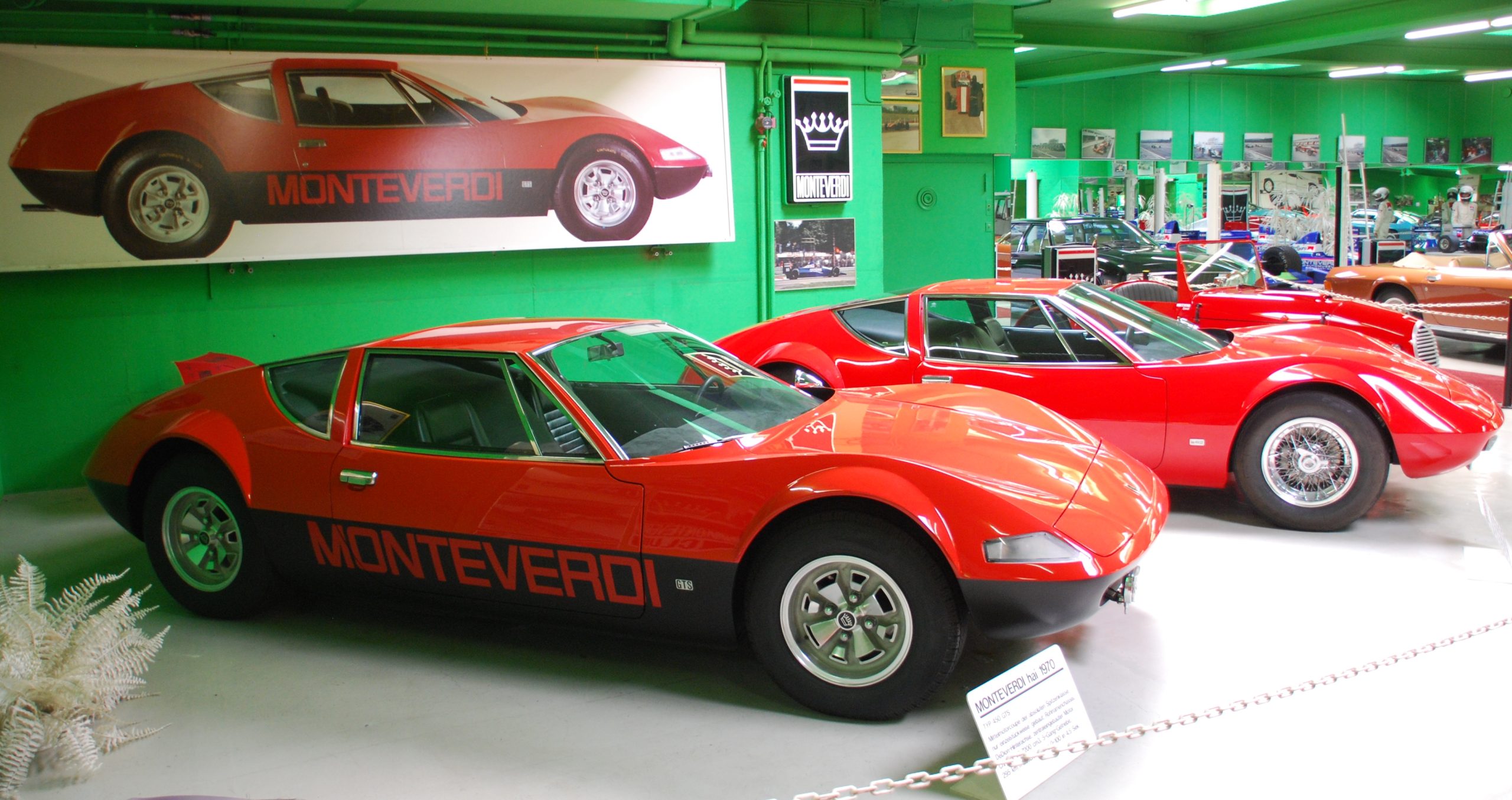
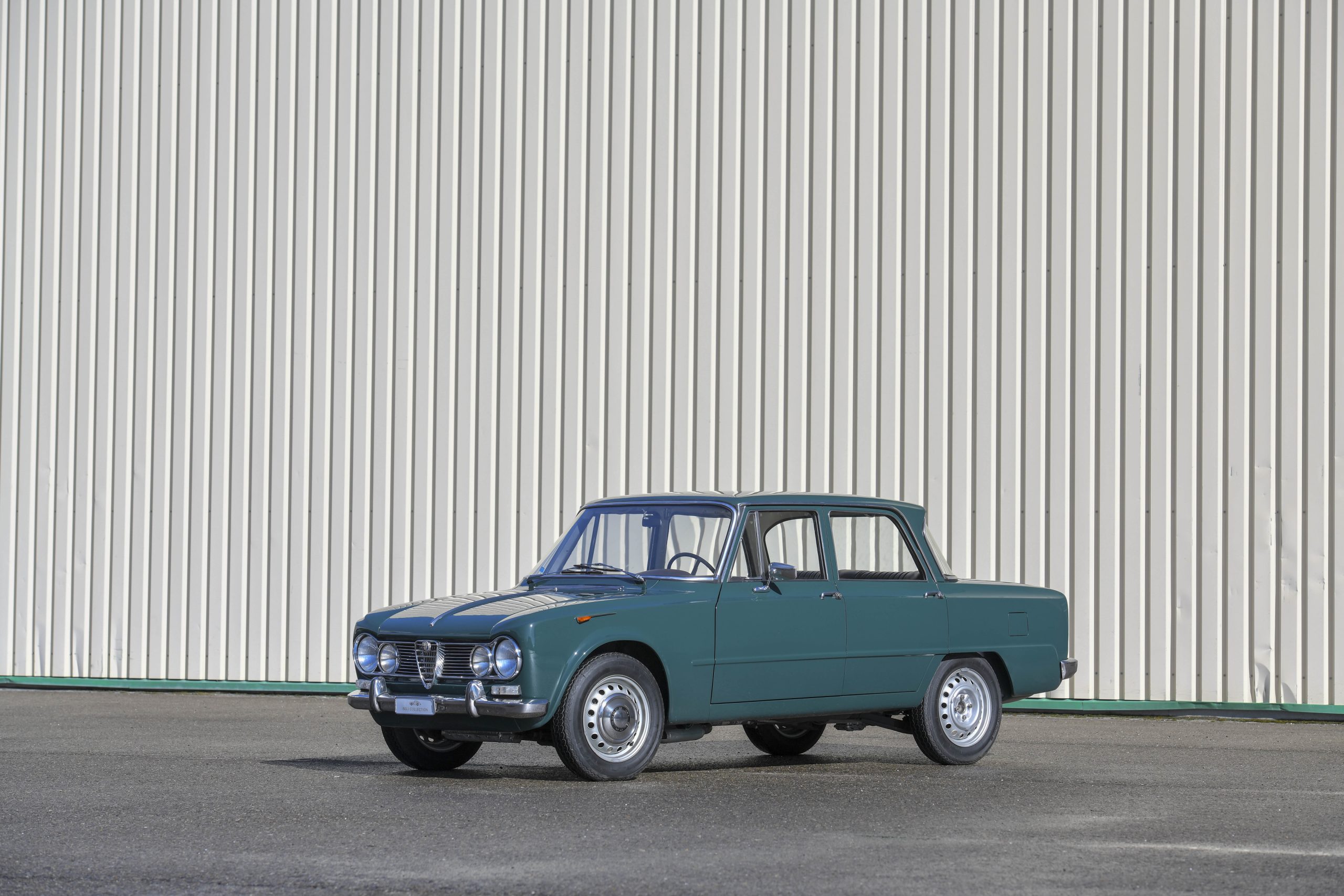

None of the above.
For corrosion prevention – ACF-50.
For dismantling/penetrating fluid – PlusGas or WD-40 Specialist Penetrant